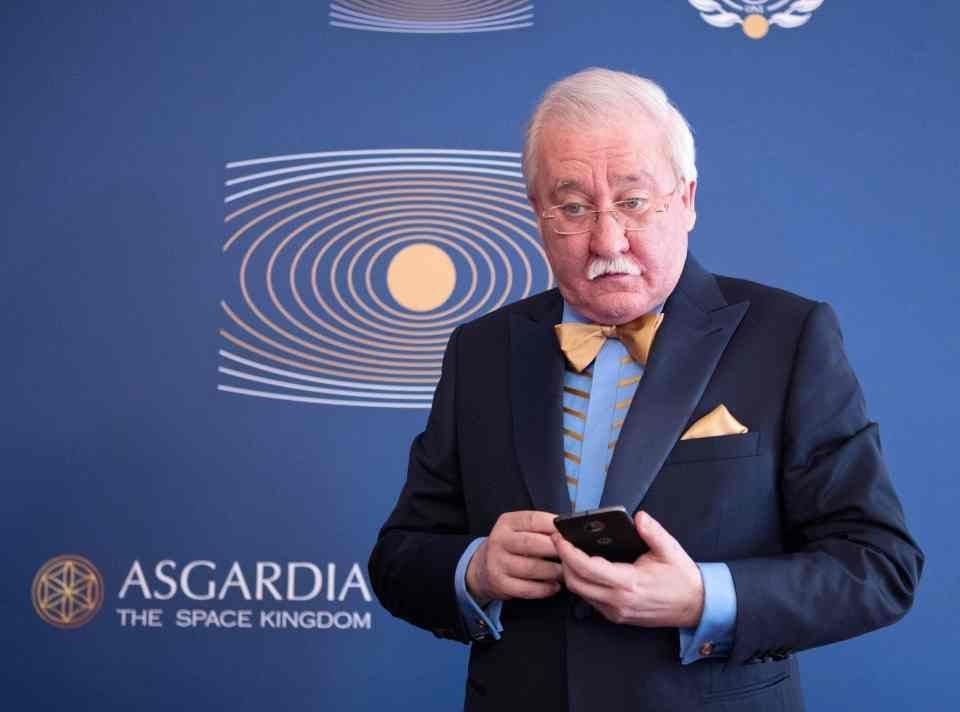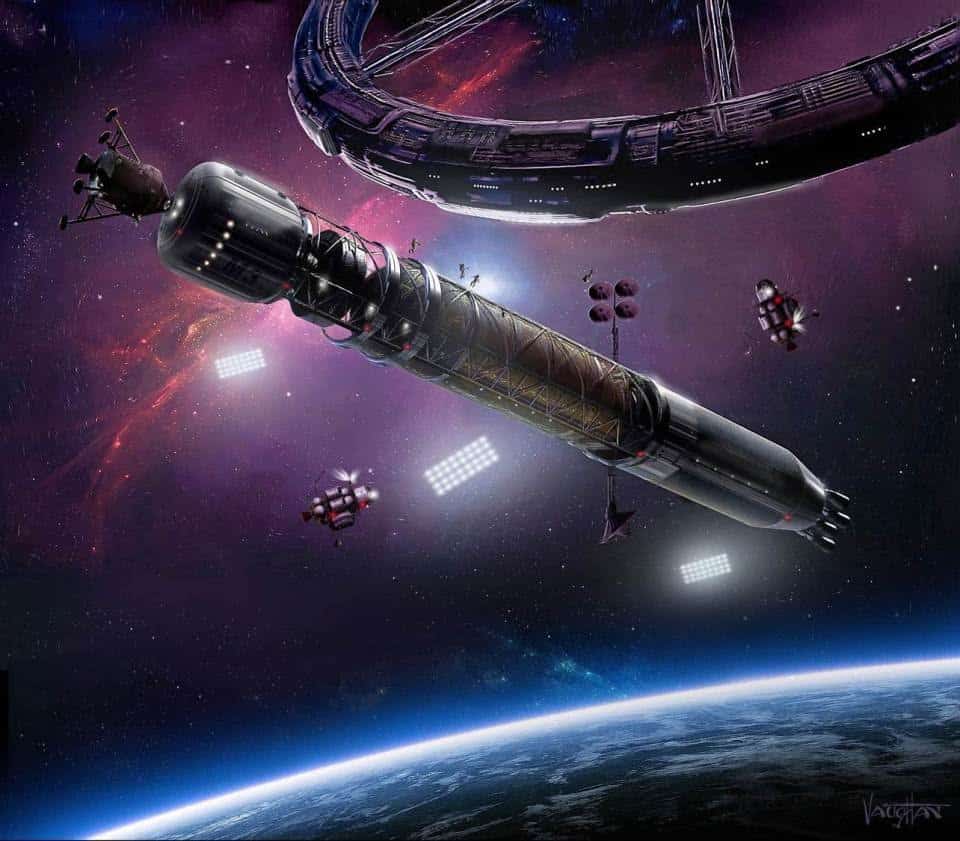The wealthy Russian tycoon Igor Ashurbeyli is making personal funds available, and collecting sources from other investors, to build the the world's first space nation.
Asgardia (the name of the project echoes the Norse mythology, or more trivially the Marvel comic) plans to host millions of inhabitants in several orbiting stations. A refuge to escape from the chaos into which humanity will throw itself in an involuntary but crazy attempt to self-destruct.

I am not surprised that the aspiring members of this space country (they are currently more than a million) have already created a national flag and a national anthem: the frustration is great, given the current technological limitations to the project, and the sense of haste must be strong .
Interviewed by the English magazine Sun, one of Asgardia's "diplomats" declared that the only way to save the planet is to escape.
Humanity will be able to become extinct on its own: anyone who wants to escape this madness has a duty to try
Lena de Winne, Minister of Communications of Asgardia.
In short, to be a nation founded only three years ago, Asgardia already seems to have quite clear ideas, even if quite gloomy.
Plan
In the plans of its founder, the Russian billionaire (of Azeri origins) Igor Ashurbeyli, Asgardia will be an “archipelago” of large space stations orbiting the Earth. A sort of "Noah's Ark" capable of hosting up to 15 million people overall.
Each "ship" (in the shape of a ring to reproduce gravity) has an estimated cost of around 150 billion euros, and will give the inhabitants a lifestyle suited to a truly pioneering adventure. Maybe not as luxurious as the space hotel currently being planned, but more than decent.
The milestone is set in 2045: for that date, Ashurbeyli hopes to be able to celebrate the birth of the first child in space.
I realize that you sound like a science fiction movie (don't you think Mr. Ashurbeyli looks a little too much like Papa Barzetti?) but it is a serious project, and the founders of the new state of Asgardia are trying to get recognition from the United Nations. Here, maybe this is quite difficult, perhaps even more difficult than building orbiting stations.
gathering
Asgardia tries to recruit among its citizens the "most creative" people on Earth to leave behind the nightmare of a planet threatened by pandemics, nuclear wars and environmental catastrophes.
To become an Asgardian you simply need to apply by providing your personal details and information on your education, then wait and hope that your application is accepted. Be confident and optimistic.
The cost is around 110 € per request: all in all a reasonable price to pay to save oneself from the inevitable fate to which the human race will be condemned, do you think?
Among the Asgardians there are already citizens from more than 200 land countries. If recognized, it will be the 172nd nation in the world (or the first in Earth orbit) by population.
Roadmap for space
The concept of territory has been very clearly defined in international law, and does not include 'artificial territories' such as satellites, just as planes, ships or oil platforms are not granted full independence.
Frans von der Dunk, professor of space law at Nebraska College.
Within 10 years of foundation (i.e. by 2026) Asgardia leaders hope to reach a population of 150 million, and to launch within 20 years of the foundation (2036) the first “Ark”, more or less as large as the current International Space Station.
Other activities carried out in this time frame are the first elections of an Asgardian parliament (with a premier, Lembit Opik, of a liberal democratic orientation) and the launch of the first research satellite, Asgardia-1, which took place in 2017.
All very beautiful, but there are obviously some significant critical issues on the path of this "people of space".
For example, many legal experts say that these plans have no realistic basis. 'From a legal point of view we are talking about nothing,' they insist.
Asgardia, he wants to say, is not “in no way definable a State in the sense of the word, even if we accept that a satellite can be defined as a quasi-territory”.


